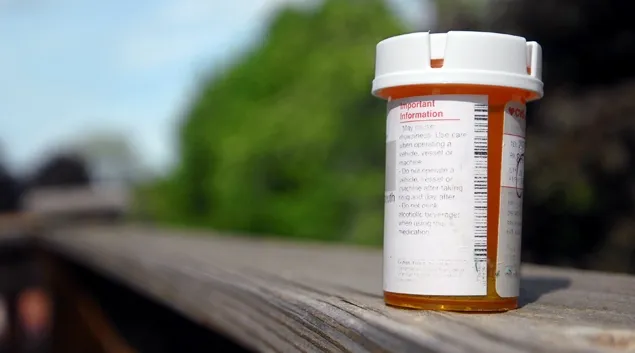
Photo: Jeff Lagasse/Healthcare Finance News
The American Hospital Association has expressed concern about drug and other shortages that may occur as a result of tariffs newly implemented by the Trump administration on items such as pharmaceuticals, medical devices and personal protective equipment.
Other low-margin, high-use medical goods come from international sources, the AHA said, such as syringes, needles and blood pressure cuffs.
There are currently no tariffs for prescription drugs, but the White House has indicated it plans to implement one. However, pharmaceutical ingredients come from international sources and are subject to tariffs.
Tariffs on those items, said 2025 AHA Board Chair Tina Freese Decker, could threaten the availability of crucial medications and devices, and could raise costs for hospitals and exacerbate shortages and supply chain disruptions.
"We've already seen the impact of supply chain disruptions in the aftermath of Hurricane Helene," wrote Decker. "To continue providing the care our communities rely on, hospitals and health systems need exemptions to ensure access to essential imports."
WHAT'S THE IMPACT
AHA President and CEO Rick Pollack has urged the administration to provide tariff exemptions for medications and medical supplies.
Pollack, in a February letter addressed to Trump directly, said exceptions to tariffs for medical devices and pharmaceuticals made in Mexico, Canada and China are "essential" for providing safe, effective care.
"It is especially critical to have these exceptions for products already in shortage and for which production in the countries subject to increased tariffs supply a significant part of the U.S. market," he wrote.
The AHA also recently responded to a request for public comment on the Department of Commerce's Section 232 national security investigation on pharmaceuticals and pharmaceutical ingredient imports. It urged the administration to maintain tariff exemptions to minimize inadvertent disruptions to patient care.
"The AHA is concerned about the potential for tariffs to raise the costs of delivering care to hospitals and health systems," the group wrote earlier this month. "A recent survey found that 82% of health care experts expect tariff-related expenses to raise hospital costs by at least 15%, and 90% of supply chain professionals expect procurement disruptions. Given that hospital payments are set by government and private payer contracts, the costs would be borne by hospitals directly. As underscored by the AHA's recent Cost of Caring report, such cost increases could further compound the broader financial headwinds challenging hospitals' ability to provide care to patients and communities."
Decker said the AHA is working with Congress to push legislation that would help to proactively map and assess the pharmaceutical, medical device and equipment supply chains.
"There also is an important opportunity to make the supply chain more resilient," she wrote.
THE LARGER TREND
The volatility of tariff policies is making it difficult for hospital executives to pin down the effect they will have on the supply chain and budget.
It's not just the products themselves that are important, but the raw materials for pharmaceuticals, which mainly come from China, the AHA said. These active pharmaceutical ingredients, or APIs, are the most important components of any pharmaceutical manufacturer's supply chain, the group said, and about 30% come from China – meaning the tariffs may hamstring manufacturers in their efforts to produce drugs in the U.S.
China is also the source of many medical devices – many of them designed for single use, like blood pressure cuffs and stethoscope covers – and disrupting the availability of these instruments could hinder clinicians' ability to perform surgeries and keep patients safe from contagion, the AHA said.
Jeff Lagasse is editor of Healthcare Finance News.
Email: jlagasse@himss.org
Healthcare Finance News is a HIMSS Media publication.